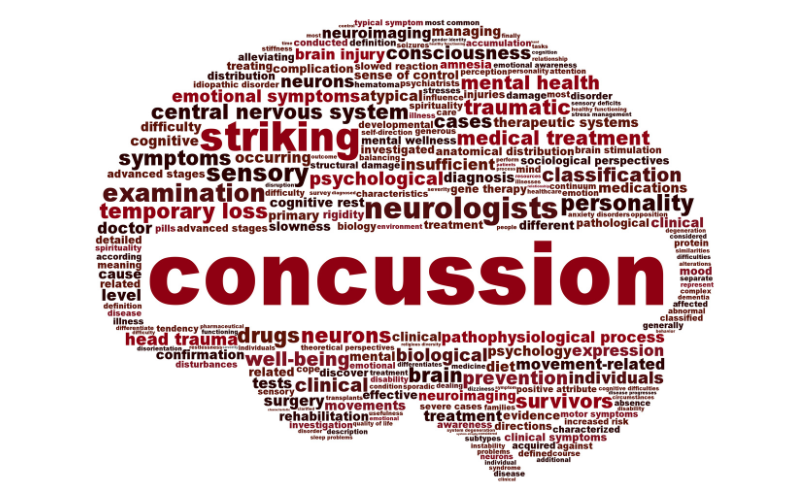
Submitted by Allison Dawood, PT, Outpatient Therapy Services
It’s autumn again, and along with the changing weather come many familiar traditions: pumpkin spice lattes, the changing color of leaves, and of course, football. Many of us are settling into our fall ritual of enjoying a good Seahawks game or watching our Fantasy Football players score points several times a week. As a physical therapist and Certified Clinical Specialist in Orthopedic Physical Therapy, my husband often asks about the recovery time for his Fantasy Football players following injuries. This specialized knowledge has become more and more valuable in recent years, and ESPN even has a Certified Orthopedic Specialist in physical therapy to speak to injuries and recovery expectations for return to play.
Recently, Tua Tagovailoa, the quarterback for the Miami Dolphins, made headlines when he lay stunned on the field after a sack with his hands bent toward his face, fingers spasmed. Earlier in the week, he stumbled walking off the field after a hit and was cleared to return to play. The series of events brought about much discussion about the NFL’s concussion protocol and safety of their players. Unfortunately, concussions are not uncommon in sports, especially in football. However, changes been made only recently in the return to play guidelines to safeguard players against the short-term and long-term effects of concussion.
Concussion definition and symptoms
According to the American Physical Therapy Association, a concussion is a brain injury sustained when a person’s head is violently shaken. This can happen in sports when being hit in the head or neck by another player or heading a ball, but it also happens in non-sport settings like motor vehicle accidents involving whiplash. Tua Tagovailoa’s infamous concussion occurred from jarring of the brain when his head contacted the turf. You do not have to lose consciousness in order to have sustained a concussion.
Acute symptoms of concussion include headache, dizziness, fatigue, blurred vision, coordination or balance deficits, slurred speech, sensitivity to light and sound, nausea and vomiting, or even seizures. It can cause confusion, memory impairment, difficulty concentrating, and slowed mental processing. It is also associated with emotional changes like mood swings, anxiety, depression, irritability, restlessness, or even aggression. Long-term, concussions can cause growth problems (if sustained by children), muscle weakness, chronic headaches or dizziness, muscle spasticity, or early dementia. The duration of concussion symptoms can vary from several weeks to several months, or even years. “Post-concussion syndrome” is diagnosed when concussion symptoms last for weeks or months after the initial injury.
PTs have specialized knowledge to help manage and treat concussions
Physical therapists are known as movement experts, but we also have specialized knowledge in helping manage concussion symptoms. We can help evaluate and treat conditions related to concussion by examining the neurological, orthopedic and cardiovascular systems, then tailoring a treatment plan specific to the patient and their needs.
Treatment often includes:
- rest and recovery period (physical and mental)
- therapeutic exercise prescription to target specific muscle weaknesses and activity intolerance
- manual therapy and exercises to help reduce headaches
- interventions to reduce dizziness
Certain physical therapists are specialized in vestibular physical therapy, which specifically treats dizziness conditions related to the vestibular system (inner ear and its connections to the brain), and we are fortunate to have these vestibular specialists right here at Valley!
October is National Physical Therapy Month, so if you or anyone you know has sustained a concussion and continues to struggle with headaches, dizziness or fatigue, ask your doctor how a physical therapist can help design a specialized program to help get you back to being you.
Valley Medical Center | Outpatient Therapy | 425.690.3650

